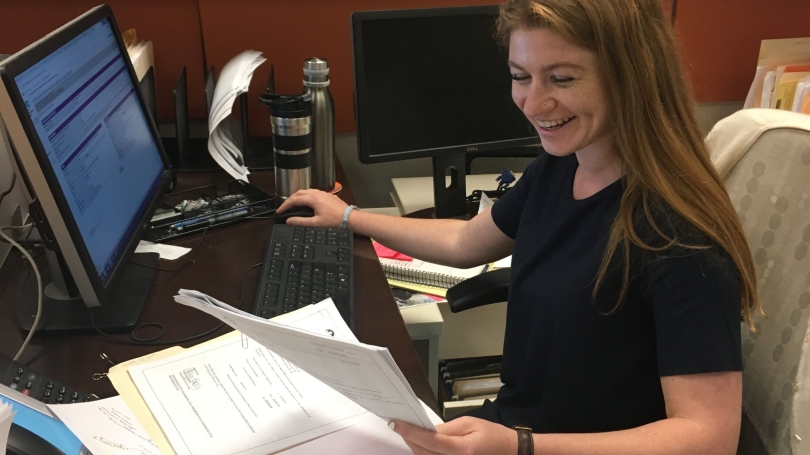
- Public Policy
- Leadership
- Funding
- News & Events
- About the Center
Back to Top Nav
Back to Top Nav
Back to Top Nav
Back to Top Nav
Nicole Beckman '20 interned at the Community League of the Heights (CLOTH), during the 2019 summer term. The following is an excerpt from her internship report.
This past summer I interned with the housing team at Community League of the Heights (CLOTH). About 1500 of the units CLOTH has developed are housing development fund corporations (HDFCs) that are now owned by individual tenant associations. Another 670 are affordable rental units currently owned by CLOTH. Many of the projects I worked on had to do with that latter group, including applying for and overseeing the implementation of green energy subsidy programs to improve energy efficiency in our portfolio and assisting with applications for low-income housing tax credits. CLOTH also has 357 units in its development pipeline.
During my internship, I was responsible for compliance reporting with the city’s Department of Housing Preservation and Development (HPD) and the state’s Homes and Community Renewal agency (HCR) which provide a significant portion of the development funds. In addition to direct development, CLOTH is part of a number of innovative programs aimed at preserving affordable housing in New York. One is Partners in Preservation (PIP), a pilot program run by HPD aimed at preventing tenant harassment and displacement. Another is the New York City Housing Authority (NYCHA) RAD program in which 1700 units of public housing will be redeveloped and managed by private mission-driven companies and converted into Section 8 housing. CLOTH, as a part of the team undertaking this project, will be surveying residents in all of the units to assess their needs and will subsequently be coordinating social service provision. Given the scale of CLOTH’s upcoming work, a large portion of my internship involved applying for grants that would allow us to build our administrative capacity. I also participated in various inter-organization PIP strategy meetings and assisted with the creation of the tenant survey as part of the NYCHA RAD program.
Moreover, I plan on using the contacts and valuable insight I have gained into the complex world of affordable housing in New York to guide my job search in the coming year. I have been impressed by the web of government agencies, non-profits, charitable lending groups, and advocacy coalitions, each of whom play vital yet completely unique roles in ensuring New York is affordable for all families. It is my hope to work for one of them after graduation.
This internship has reinforced the importance of my public policy minor. Public policy is interdisciplinary. Although academia tends to be somewhat wary of the generalist, understanding how to quickly build a working expertise in an issue area is a vital skillset for working in a policy landscape that is constantly changing. Even in my time at CLOTH two landmark tenant rights and climate change packages were passed at the state and city level, respectively, which will alter the way organizations approach and build affordable housing. During the internship, the ability to understand financial underwriting emerged as a crucial skill, so I intend to take advantage of the classes and programs Tuck offers to undergraduates to sharpen my financial knowledge. I have been interested in affordable housing and urban policy for many years, and after this internship I intend to apply for full-time positions with city agencies, advocacy groups, and other stakeholders in affordable housing. Thank you to the Rockefeller Center for making this incredible experience possible.
The Rockefeller Internships Program has funding for Dartmouth undergraduate students to help defray the cost of living expenses associated with a full-time, unpaid, leave-term internships in the fields of public policy, public affairs, and social entrepreneurship.